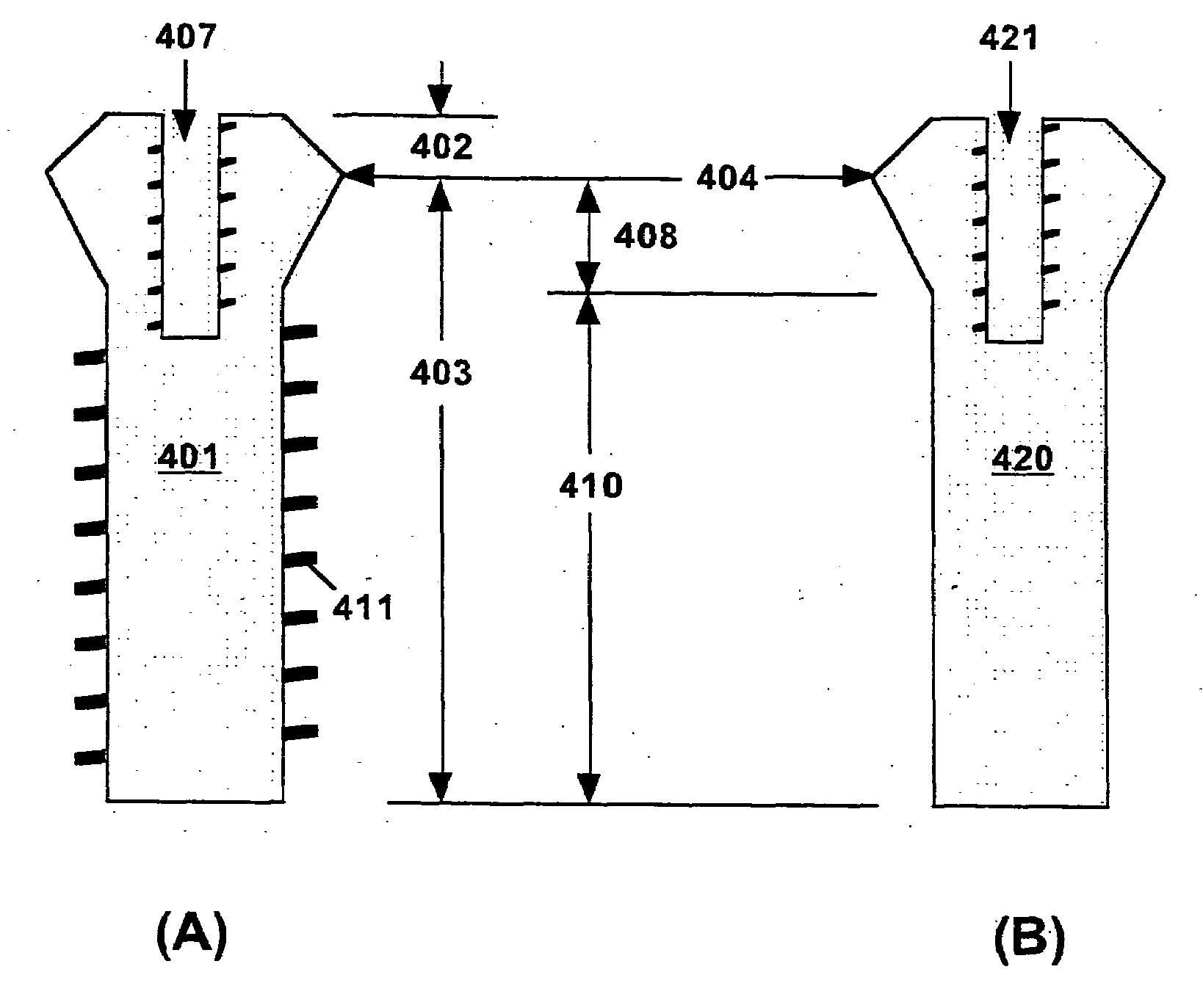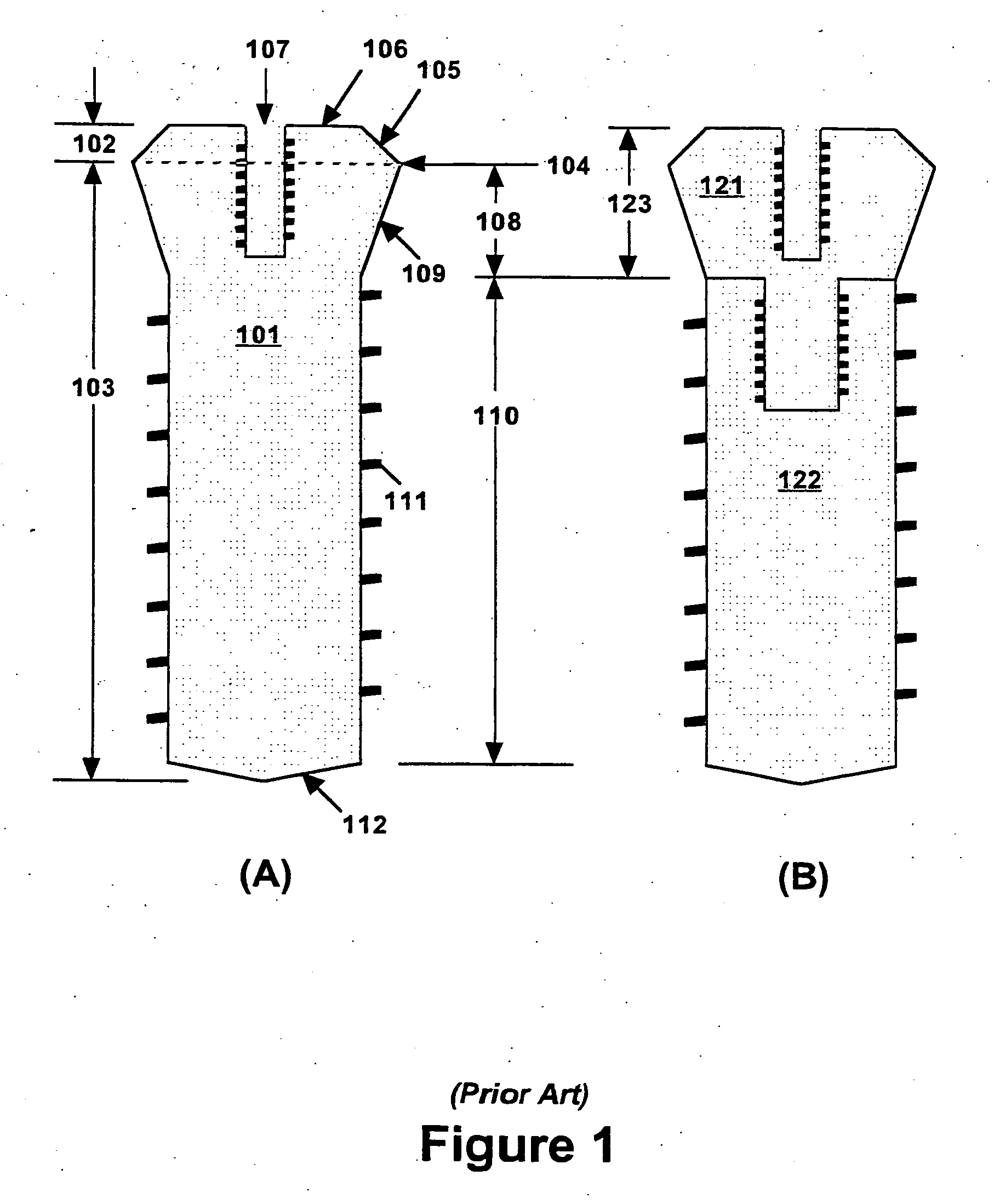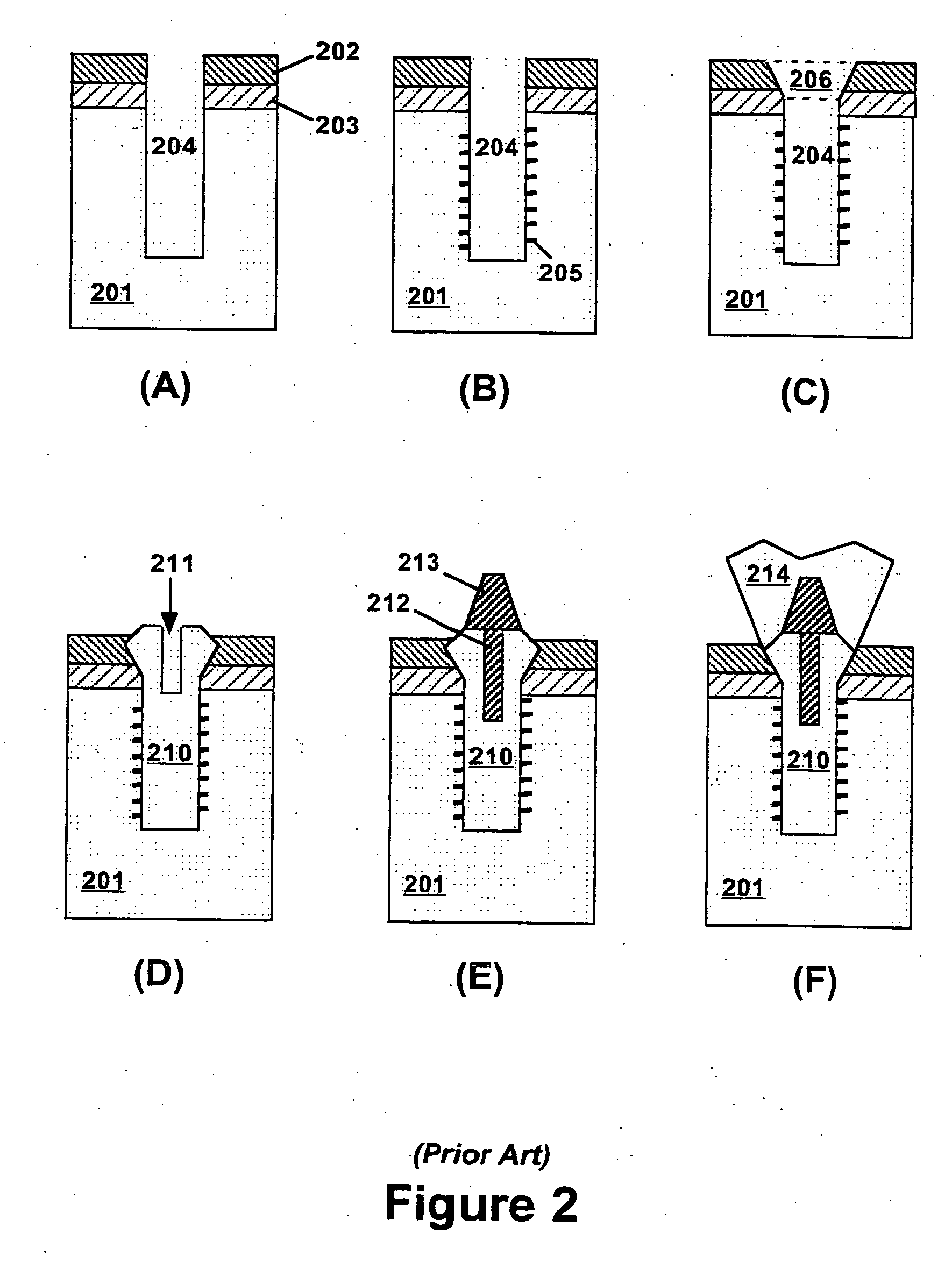Method for vertical positioning of dental implants
a technology for dental implants and vertical positioning, applied in the field of dental implants, can solve problems such as insufficient bone relief, and achieve the effects of improving the function and appearance of dental implants, ensuring the long-term survivability of implants, and improving the accuracy of surgical implant placemen
- Summary
- Abstract
- Description
- Claims
- Application Information
AI Technical Summary
Benefits of technology
Problems solved by technology
Method used
Image
Examples
Embodiment Construction
[0035]Technical terms used in this document are generally known to those skilled in the art. The term “vertical” denotes the direction along the axis of a hole in which a dental implant is inserted, wherein the “lower portion” of the implant (or implant positioning device) is located toward the bottom of the hole, and the “upper portion” of the implant (or implant positioning device) is located toward the top of the hole. The term “conical” is used in the general sense to denote a three-dimensional conical shape and encompasses both right circular cones and those for which an axial cross-section of the cone comprises a curved line. The term “conical” also encompasses implants with a conical emergence profile and a cylindrical top portion. As applied to the lower portion of an implant or implant positioning device, the term “cylindrical” also encompasses a lower portion tapered to have smaller diameter at the bottom.
[0036]The terminology used for an implant is the same whether the im...
PUM
 Login to View More
Login to View More Abstract
Description
Claims
Application Information
 Login to View More
Login to View More - R&D
- Intellectual Property
- Life Sciences
- Materials
- Tech Scout
- Unparalleled Data Quality
- Higher Quality Content
- 60% Fewer Hallucinations
Browse by: Latest US Patents, China's latest patents, Technical Efficacy Thesaurus, Application Domain, Technology Topic, Popular Technical Reports.
© 2025 PatSnap. All rights reserved.Legal|Privacy policy|Modern Slavery Act Transparency Statement|Sitemap|About US| Contact US: help@patsnap.com



